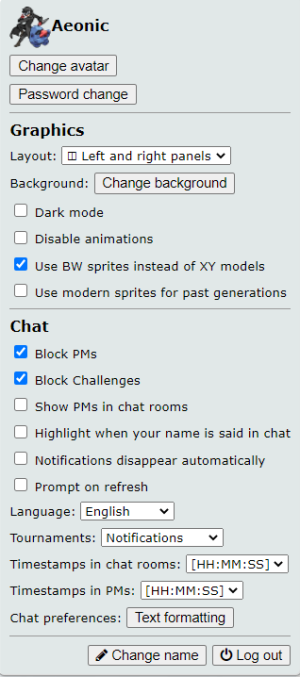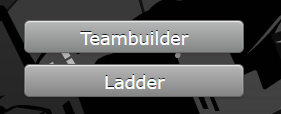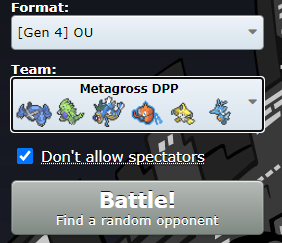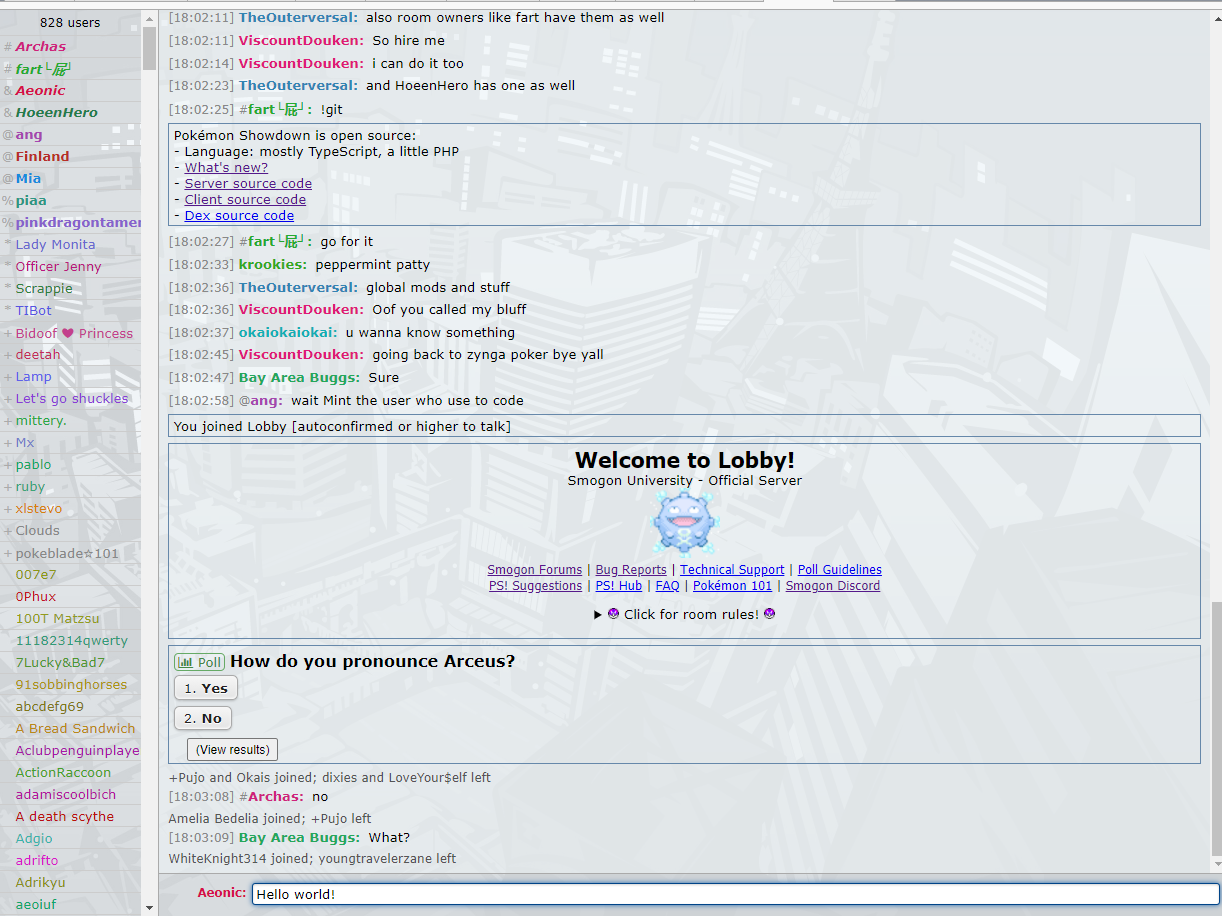- /faq
- Provides a link to the Frequently Asked Questions page.
- /rules
- Provides a link to the rules page.
- /help [x] OR /h [x]
- Gives information on a given subject. Replace [x] with a different command, subject, or "all" (no quotes).
- /intro
- Provides an introduction to competitive Pokémon.
- /learn [Pokémon], [move, move, ...]
- Displays if and how a Pokémon can learn the given moves, if it can at all.
- /dexsearch [parameter1, parameter2, parameter2, ...] OR \ds [parameter1, parameter2, parameter3, ...]
- Lists all Pokémon in the current generation that meet the given criteria. Use /nationaldexsearch (alternate: /nds) to search all Pokémon, even those that are not legal in the current generation. A list of valid parameters can be found through /help ds.
- /data [Pokémon/item/move/ability] OR /info [Pokémon/item/move/ability] OR /stats [Pokémon/item/move/ability]
- Shows details on the given Pokémon/item/move/ability.
- /details [Pokémon] OR /dt [Pokémon]
- Shows in-depth details about this Pokémon.
- /whois [username] OR /rooms [username]
- Shows a user and which rooms they're in if they are online.
- /user [username]
- Shows the usercard for a user, allowing you to see whether they are online or not, the rooms they're in, and buttons to challenge and private message them.
- /ip
- Get your own IP address.
- /weakness [type1, type2] OR /weak [type1, type2]
- Provides the weakness of a type or type combination.
- /coverage [type1, type 2]
- Provides the coverage of a type or type combination.
- /analysis [Pokémon], [generation] OR /smogdex [Pokémon], [generation]
- Links to the Smogon University analysis for this Pokémon in the given generation.
- /groups
- Explains what the ^ + % @ * # & symbols next to people's names mean. (This is also covered later in the guide).
- /opensource OR /git
- Links to PS's source code repository.
- /avatars
- Explains how to change avatars.
- /cap
- Provides an introduction to the Create-A-Pokémon project.
- /om [metagame]
- Provides links to information on the Other Metagames. If an argument is provided (i.e. /om hackmons), information on that meta will be given.
- /om month OR /omotm
- Links to explanation of the Other Metagame of the month.
- /calc
- Provides a link to a damage calculator. You can also use /rcalc to view the damage calculator specifically for random battles.
- /restarthelp
- Gives information regarding server restarts.
- /veekun [Pokémon/item/move/ability/nature]
- Links to Veekun website for this Pokémon/item/move/ability/nature.
- /math
- Performs a mathematical operation.
- /pi
- Lists some digits of pi. Because why not.
The Beginner's Guide to Pokemon Showdown
Introduction and BackgroundPokémon Showdown, often formatted as Pokémon Showdown!, is a popular competitive Pokémon simulator. It was created by Zarel and opened in October of 2011, but it was not until July 2, 2012, that it was adopted as Smogon's official battle simulator. Pokémon Showdown is a web-based project available on all major browsers. Pokémon Showdown was designed to simulate the conditions of Wi-Fi Pokémon games in a more stable environment, which creates a more efficient method in which to be involved in the competitive Pokémon setting. The aim of this guide is to explain to new users to the way in which Pokémon Showdown operates and integrate said users into the community as a whole. This guide may also contain sections that help veterans of the site understand aspects of the program as well. SettingsPokémon Showdown allows users to customize their settings to their own preference. In order to change those settings, one should navigate their cursor to the top right of the main menu when logged in and hit on the gear/cog button to open up the settings menu. What the settings menu looks like: 
There are many options and preferences you can change through the menu. Most should be pretty self-explanatory, but feel free to play around and see what you prefer. If you have additional questions, check out the Help room on Showdown. CommandsWithin any of the chats it is possible to type in commands (messages beginning with /) in order to perform a particular action. A wide variety of these commands exist, with some only available to certain users. For instance, only Voice users (+) can broadcast commands to others (!dt for example), and only Administrators (&) can promote users globally. These ranks will be explained in depth later on. For more information, see the Community section. The list of commands is divided into sections by category. A short description of each command is provided. InformationalThese are commands that provide information on a variety of topics. Settings and PreferencesThese commands allow you change details about yourself and how you view Pokémon Showdown.
BattleThese commands are designed for use in battles.
Rooms and ChatThe commands listed below are all relevant to the rooms or private messages. This topic is discussed more in depth in the "Rooms" subsection.
HighlightsA highlight is a word, phrase, or regular expression (regex) that notifies you when posted by another user in a chatroom or battle. The message, room tab, and Showdown icon in your browser tab will be highlighted yellow or blue for you (depending on which theme you use).
TeambuilderThe teambuilder is a large part of Pokémon Showdown and enables users to create their own teams from scratch, import other people's teams, or edit any of their currently existing ones. Some formats on the simulator will not require you to create a team and let you jump straight into battle. An example of this is the very popular "Random Battle" mode, or as it is commonly referred to, "Randbats" for short. Other tiers and formats, such as OU, Ubers, UU, Monotype, and Almost Any Ability, require you to create a team that follows the rules and restrictions of the metagame. If you'd like a listing of what you can and can't use for each tier, click here. In order to create a team, click on the "Teambuilder" button in the main menu. The teambuilder is located on the left side of the home page. 
Building a team is fairly self-explanatory, with the teambuilder guiding you along each stage of the process. You can select a Pokémon's item, ability, moves, stats, and other details, such as its level (from 1 to 100), its gender (None, Random, Male, or Female), happiness, and whether or not it is shiny. Keep in mind that some sets may require a Pokémon to have particular attributes. If you attempt to enter a battle with a moveset that doesn't abide by these rules, you will be prompted to alter it before you battle. Below is an example of a finished Pokémon in the teambuilder. 
Other features of the Teambuilder include the ability to rearrange the team slots (the "Move" button on the top right of the above image), delete existing Pokémon or teams, import/export text versions of teams so that you can share them or create offsite backups, create folders for your teams, and even store Pokémon sets in a box. BattlingOrganizing a battle on Pokémon Showdown is quite simple. One can opt to either play in a ladder game (in which you receive a random opponent) or challenge a specific user. To play in a ladder game, select your format and team in the top lefthand corner using the drop-down boxes. If your team is accepted and deemed legal by the server for that specific format, you will be put in a queue amongst other players to join a match. The server matches you ideally with people with the closest rank to you, though it expands the parameters as time progresses. There is a toggle to allow spectators in your matches or not—this setting is persistent. Select your desired format and team and then hit "Battle!". 
Alternatively, you can type /challenge [username] into chat or click on a person's name to challenge them manually. However, these types of games will not change your ranking on the ladder. From the point of two players entering a game, you'll be thrown either straight into a battle or into the Team Preview. Team Preview occurs in the majority of formats, in which case you will be given time to choose your leading Pokémon based on your opponent's team. After you've made your choice, the battle will begin almost identically to the actual games themselves. The process of choosing your moves and switching Pokémon is rather straightforward. If you wish to Mega Evolve or Dynamax a Pokémon, click the checkbox located below the moves. If you're interested in honing your battling skills and learning the fundamentals of teambuilding, check out the Trainer Academy room on Showdown. If you are looking to have your team rated by peers or view teams created by other users, check out the Rate My Team subforum—but make sure to thoroughly read the rules before you post! CommunityThe Pokémon Showdown Lobby chat is shown below. 
One of the most common questions I see on Pokémon Showdown are "How do you get that plus sign?" or "How do you become a mod?". These different symbols (^, +, %, @, *, #, &) all denote a particular rank or staff position. This table below shows what each rank represents and their respective abilities. 
Side note: If you're interested in learning more about the commands available to each rank, try typing into chat /help [rank] in which you replace [rank] with one of the above symbols. How does someone go about gaining one of these snazzy ranks? Check out the Staff FAQ for more information. RoomsWhile the main room used on Pokémon Showdown is the Lobby, a variety of different rooms exist for different purposes. These rooms can range from different language rooms, to rooms for people with particular hobbies, or those dedicated to a particular playable format. Rooms can either be official, public (which means they're listed under "chat rooms"), or private. To join a room, one can either type the /join [roomname] command into chat or hit the large plus button to the right of your room list and select your desired room. 
Official rooms are pinned to the top of the roomlist; they serve a large audience and have an important purpose. Lobby is the default room—if you don't know which room to start with, try it out! Help aims to answer any and all questions about Pokémon Showdown and Smogon. If you have questions or need help, head there! Tournaments hosts frequent round-the-clock tournaments of many different formats. Make sure to check out the Tours Plaza subroom as well for lesser-known and -played formats! Public rooms cover a specific topic such as a Smogon tier, hobby, or video game. There are dozens of these rooms; you're encouraged to try many of them out and see which suit you. If you have an interest, there's probably a public room for it! Private rooms are generally invite only and either cover a specific niche topic or cater to a specific group. Examples of private rooms could be a Spanish VGC group, a room for battle minigames, and a room for a Smogon Premier League team to prepare and strategize. Resources and Links
|